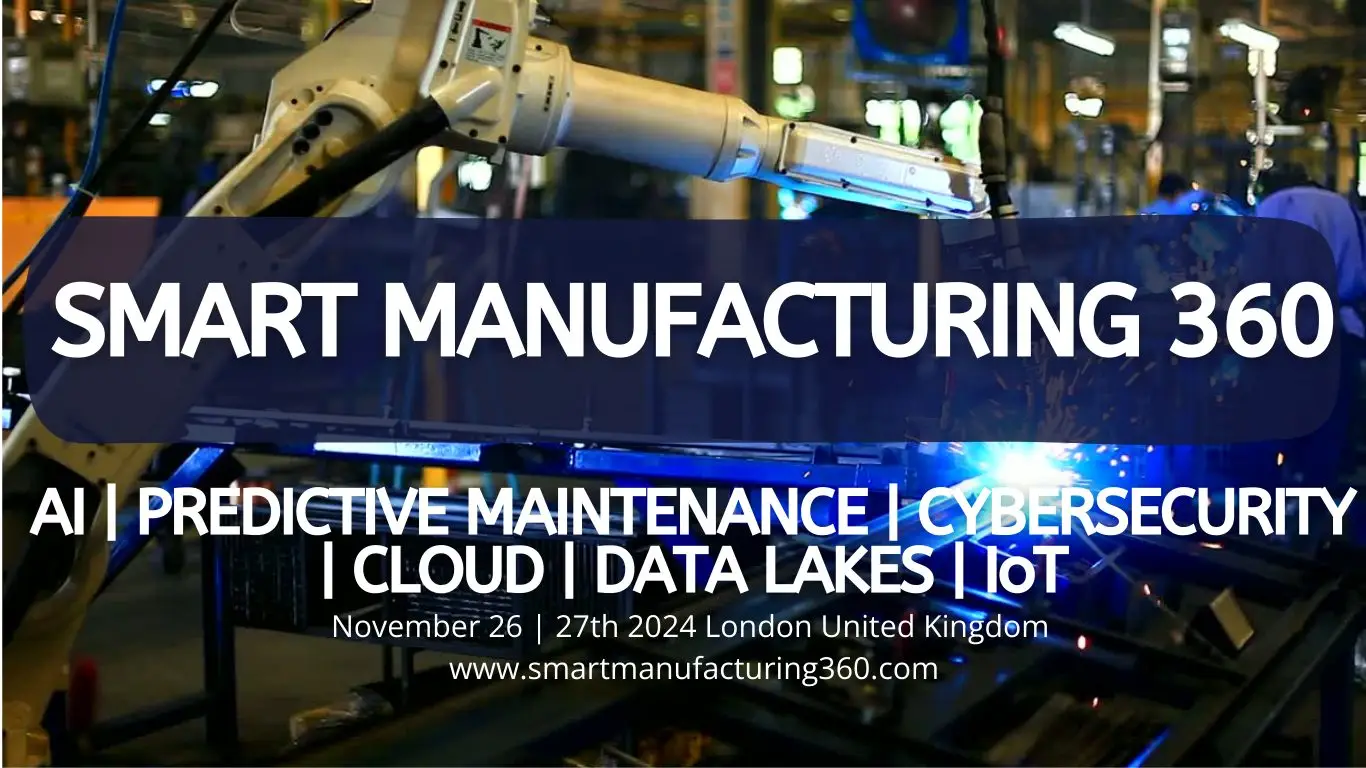The Importance of the Smart Manufacturing 360 Cyber Senate Conference
Introduction
The Smart Manufacturing 360 Cyber Senate Conference is a pivotal event designed to bring together industry leaders from various domains, including cybersecurity, digital transformation, operations, and maintenance. As the manufacturing sector evolves, this conference plays a crucial role in addressing contemporary challenges and fostering innovation. By uniting experts and professionals, the conference aims to enhance knowledge, share best practices, and drive the industry forward.
Uniting Key Industry Leaders
One of the primary strengths of the Smart Manufacturing 360 Cyber Senate Conference is its ability to bring together key industry leaders. Attendees typically include C-level executives such as Chief Operating Officers (COOs), Chief Information Officers (CIOs), Chief Technology Officers (CTOs), Chief Digital Officers (CDOs), Chief Security Officers (CSOs), Chief Innovation Officers (CINOs), Chief Sustainability Officers (CSOs), and Chief Information Security Officers (CISOs). Additionally, Heads of Artificial Intelligence and IT, Cloud Infrastructure Directors, IoT Directors, Sustainability Directors, Asset Management Directors, and Maintenance and Engineering Directors also participate.
This diverse group of professionals offers unparalleled networking opportunities. Attendees can connect with peers, share insights, and collaborate on solutions to common challenges. The exchange of ideas and experiences fosters a community of professionals dedicated to advancing the manufacturing industry.
Focus Areas of the Conference
The Smart Manufacturing 360 Cyber Senate Conference covers a broad range of focus areas critical to modern manufacturing. These include cybersecurity, digital transformation, operations, and maintenance. Each of these areas is crucial for driving innovation, improving efficiency, and ensuring the security and sustainability of manufacturing operations.
Cybersecurity
Cybersecurity is a top priority for the manufacturing sector, as it is increasingly vulnerable to cyber threats. The conference addresses key cybersecurity issues, offering insights into protecting manufacturing systems from cyber attacks, securing industrial control systems, and implementing robust cybersecurity strategies.
Digital Transformation
Digital transformation is reshaping the manufacturing landscape. The conference delves into the latest trends and technologies driving this transformation, including digital twins, automation, and data analytics. Attendees gain valuable knowledge on how to leverage digital tools to enhance productivity and operational efficiency.
Operations and Maintenance
Operations and maintenance are fundamental aspects of manufacturing that directly impact productivity and profitability. The conference explores the latest trends and best practices in operations and maintenance, including predictive maintenance, condition-based maintenance, and asset management. These discussions help attendees optimize their operations and extend the lifespan of their equipment.
Enhancing Cybersecurity in Manufacturing
Cybersecurity is a critical concern in the manufacturing sector due to the increasing prevalence of cyber threats targeting industrial systems. The Smart Manufacturing 360 Cyber Senate Conference addresses these concerns by bringing together cybersecurity experts to discuss the latest threats, vulnerabilities, and defense mechanisms.
Key cybersecurity topics covered at the conference include:
- Protecting Industrial Control Systems (ICS): The conference explores strategies for safeguarding ICS, which are integral to manufacturing operations.
- Implementing Robust Cybersecurity Frameworks: Attendees learn about the latest frameworks and standards for enhancing cybersecurity in manufacturing.
- Incident Response and Recovery: Experts share best practices for responding to and recovering from cyber incidents, minimizing downtime and financial losses.
These discussions provide attendees with actionable insights to strengthen their cybersecurity posture and protect their critical infrastructure.
Driving Digital Transformation
Digital transformation is at the forefront of modern manufacturing, enabling companies to enhance efficiency, reduce costs, and improve product quality. The Smart Manufacturing 360 Cyber Senate Conference is a hub for exploring the latest advancements and strategies in digital transformation.
Key insights from the conference on digital transformation include:
- Leveraging Digital Twins: Digital twins create virtual replicas of physical assets, allowing for real-time monitoring and predictive maintenance.
- Automation and Robotics: The conference highlights the benefits of integrating automation and robotics into manufacturing processes, reducing human error, and increasing efficiency.
- Data Analytics and AI: Attendees learn how to harness the power of data analytics and artificial intelligence to make informed decisions and optimize operations.
By embracing digital transformation, manufacturers can stay competitive in an increasingly digital world and drive significant improvements in their operations.
Improving Operations and Maintenance
Operations and maintenance are crucial for ensuring the smooth functioning of manufacturing processes. The Smart Manufacturing 360 Cyber Senate Conference provides a platform for discussing the latest trends and best practices in these areas, helping attendees enhance their operational efficiency.
Key topics related to operations and maintenance include:
- Predictive Maintenance: This approach uses data analytics to predict equipment failures before they occur, allowing for proactive maintenance and reducing downtime.
- Condition-Based Maintenance: By monitoring the condition of equipment in real-time, manufacturers can perform maintenance based on the actual state of the equipment rather than on a fixed schedule, leading to more efficient use of resources.
- Asset Management: Effective asset management strategies are essential for maximizing the lifespan and performance of manufacturing equipment. The conference covers best practices for asset tracking, maintenance scheduling, and lifecycle management.
These discussions help attendees implement advanced maintenance strategies, reducing costs, and improving equipment reliability.
Predictive and Condition-Based Maintenance
Predictive and condition-based maintenance are advanced strategies that leverage technology to optimize maintenance activities. The Smart Manufacturing 360 Cyber Senate Conference delves into these strategies, offering attendees valuable insights and practical knowledge.
- Predictive Maintenance: Predictive maintenance uses sensors and data analytics to forecast when equipment is likely to fail. This approach allows manufacturers to perform maintenance just in time, preventing unexpected breakdowns and minimizing downtime. Conference sessions on predictive maintenance cover:
- Data Collection and Analysis: Techniques for gathering and analyzing data from equipment to predict failures.
- Machine Learning Algorithms: Using machine learning to improve the accuracy of predictive models.
- Implementation Challenges: Addressing the challenges of integrating predictive maintenance into existing operations.
- Condition-Based Maintenance: Condition-based maintenance involves monitoring the actual condition of equipment and performing maintenance only when necessary. This approach ensures that maintenance activities are performed based on real-time data, leading to more efficient and effective maintenance schedules. Key topics include:
- Sensor Technology: Utilizing advanced sensors to monitor equipment conditions.
- Real-Time Monitoring: Implementing systems for continuous monitoring and immediate response.
- Cost-Benefit Analysis: Evaluating the economic benefits of condition-based maintenance compared to traditional methods.
These sessions equip attendees with the knowledge to implement predictive and condition-based maintenance, ultimately enhancing operational efficiency and reducing maintenance costs.
Integration of Artificial Intelligence
Artificial Intelligence (AI) is revolutionizing the manufacturing industry by enabling smarter, more efficient operations. The Smart Manufacturing 360 Cyber Senate Conference highlights the impact of AI on manufacturing and offers insights into how companies can leverage AI to gain a competitive edge.
Key AI-related sessions at the conference include:
- AI in Quality Control: Using AI to detect defects and ensure product quality. Attendees learn about the latest AI-powered quality control systems that can identify even the smallest defects in real-time.
- Predictive Analytics: How AI-driven predictive analytics can forecast demand, optimize supply chains, and improve production planning. This helps manufacturers to anticipate market changes and adjust their operations accordingly.
- AI for Process Optimization: Implementing AI to streamline manufacturing processes, reduce waste, and enhance productivity. The conference showcases case studies of successful AI integrations that have led to significant improvements in operational efficiency.
By embracing AI, manufacturers can not only improve their current processes but also pave the way for future innovations.
Industrial Cloud and IoT
The integration of Industrial Cloud and the Internet of Things (IoT) is transforming the manufacturing landscape by enabling seamless connectivity and real-time data sharing across operations. The Smart Manufacturing 360 Cyber Senate Conference explores these technologies and their implications for the industry.
Key takeaways from the conference on Industrial Cloud and IoT include:
- Industrial Cloud Solutions: How cloud-based platforms facilitate the management and analysis of vast amounts of data generated by manufacturing operations. These solutions provide scalable and flexible infrastructure for data storage and processing.
- IoT in Manufacturing: The role of IoT in connecting machines, devices, and systems, allowing for real-time monitoring, control, and optimization of manufacturing processes. Sessions cover:
- IoT-Enabled Smart Factories: Implementing IoT to create intelligent manufacturing environments that enhance productivity and efficiency.
- Edge Computing: Using edge computing to process data closer to where it is generated, reducing latency and improving response times.
- Security Considerations: Addressing the cybersecurity challenges associated with IoT and ensuring secure data transmission across connected devices.
By integrating Industrial Cloud and IoT technologies, manufacturers can achieve greater visibility and control over their operations, leading to improved efficiency and reduced downtime.
Asset Information and Data Management
Effective management of asset information and data is critical for modern manufacturing operations. The Smart Manufacturing 360 Cyber Senate Conference provides in-depth discussions on the best practices and strategies for asset information and data management.
Key topics include:
- Asset Information Management: Techniques for maintaining accurate and up-to-date information about manufacturing assets. This includes asset tracking, performance monitoring, and lifecycle management.
- Data Management Strategies: Effective data management is essential for leveraging the full potential of digital transformation. Sessions cover:
- Data Collection and Integration: Best practices for collecting data from various sources and integrating it into a unified system.
- Data Security: Ensuring the security and integrity of data throughout its lifecycle, from collection to storage and analysis.
- Data Analytics: Using advanced analytics tools to extract actionable insights from data, enabling better decision-making and operational improvements.
These insights help manufacturers optimize their asset management processes and make data-driven decisions to enhance overall efficiency and performance.
Sustainability in Manufacturing
Sustainability is a key focus for the manufacturing industry, as companies seek to reduce their environmental impact and promote long-term viability. The Smart Manufacturing 360 Cyber Senate Conference addresses the importance of sustainability and explores strategies for achieving sustainable manufacturing.
Key sessions focused on sustainability include:
- Sustainable Manufacturing Practices: Implementing practices that minimize waste, reduce energy consumption, and lower emissions. This includes adopting lean manufacturing techniques, recycling, and using eco-friendly materials.
- Energy Efficiency: Strategies for improving energy efficiency in manufacturing operations, such as optimizing energy use in production processes and implementing renewable energy sources.
- Regulatory Compliance: Understanding and complying with environmental regulations and standards. Sessions provide guidance on navigating the complex landscape of environmental laws and certifications.
- Sustainability Reporting: Best practices for measuring and reporting sustainability performance. This includes tracking key sustainability metrics and communicating progress to stakeholders.
By prioritizing sustainability, manufacturers can not only reduce their environmental footprint but also enhance their reputation and achieve cost savings through more efficient resource use.
Enhancing Operational Efficiency
Operational efficiency is crucial for the competitiveness and profitability of manufacturing companies. The Smart Manufacturing 360 Cyber Senate Conference offers valuable insights into strategies for improving efficiency across all aspects of manufacturing operations.
Key strategies discussed at the conference include:
- Process Optimization: Techniques for streamlining production processes to reduce waste and increase productivity. This includes lean manufacturing practices, Six Sigma methodologies, and continuous improvement programs.
- Automation: Implementing advanced automation technologies to enhance the speed and accuracy of manufacturing processes. This covers the use of robotics, automated assembly lines, and AI-driven automation solutions.
- Workforce Training: Ensuring that employees are well-trained and equipped with the skills needed to operate new technologies and systems. Sessions emphasize the importance of ongoing training and development programs.
These strategies help manufacturers achieve higher levels of efficiency, reduce operational costs, and maintain a competitive edge in the market.
Ensuring Profitability
Profitability is a key objective for all manufacturing companies. The Smart Manufacturing 360 Cyber Senate Conference provides insights into how companies can enhance their profitability through various innovative strategies.
Key topics related to profitability include:
- Cost Reduction: Identifying areas where costs can be reduced without compromising on quality. This includes optimizing supply chains, reducing waste, and improving energy efficiency.
- Revenue Growth: Exploring new revenue streams and business models enabled by digital transformation and technological advancements. This includes offering value-added services, entering new markets, and leveraging data to create new products.
- Financial Management: Implementing effective financial management practices to ensure long-term profitability. Sessions cover budgeting, financial forecasting, and performance measurement.
By adopting these strategies, manufacturers can improve their bottom line and ensure sustainable growth.
Building a Secure and Efficient Future
The Smart Manufacturing 360 Cyber Senate Conference plays a crucial role in shaping the future of the manufacturing industry. By bringing together experts and professionals from various domains, the conference helps attendees prepare for the challenges and opportunities that lie ahead.
Key long-term benefits of attending the conference include:
- Staying Ahead of Industry Trends: Gaining insights into the latest trends and innovations in manufacturing, ensuring that companies remain competitive in a rapidly evolving industry.
- Networking Opportunities: Building relationships with industry leaders, peers, and potential partners, fostering collaboration and knowledge sharing.
- Implementing Best Practices: Learning about best practices and successful case studies that can be applied to improve operations and drive innovation.
By participating in the Smart Manufacturing 360 Cyber Senate Conference, manufacturers can enhance their knowledge, skills, and capabilities, positioning themselves for success in the future.
Conclusion
The Smart Manufacturing 360 Cyber Senate Conference is a pivotal event that brings together leaders in cybersecurity, digital transformation, operations, and maintenance. By addressing key challenges and opportunities in the manufacturing industry, the conference helps attendees drive operational efficiency, security, profitability, and sustainability. Through networking, learning, and collaboration, participants can gain valuable insights and strategies to enhance their operations and prepare for the future.




